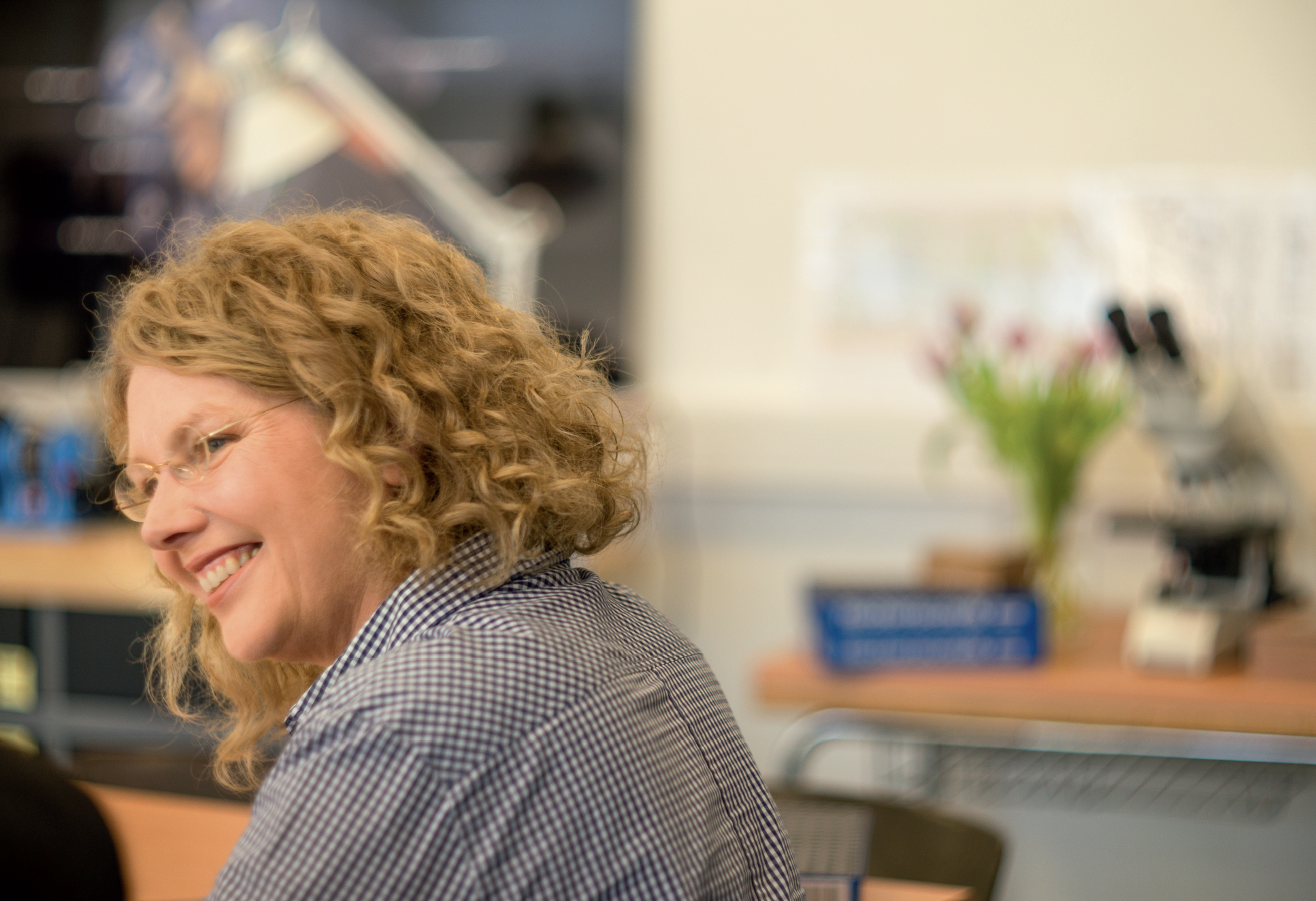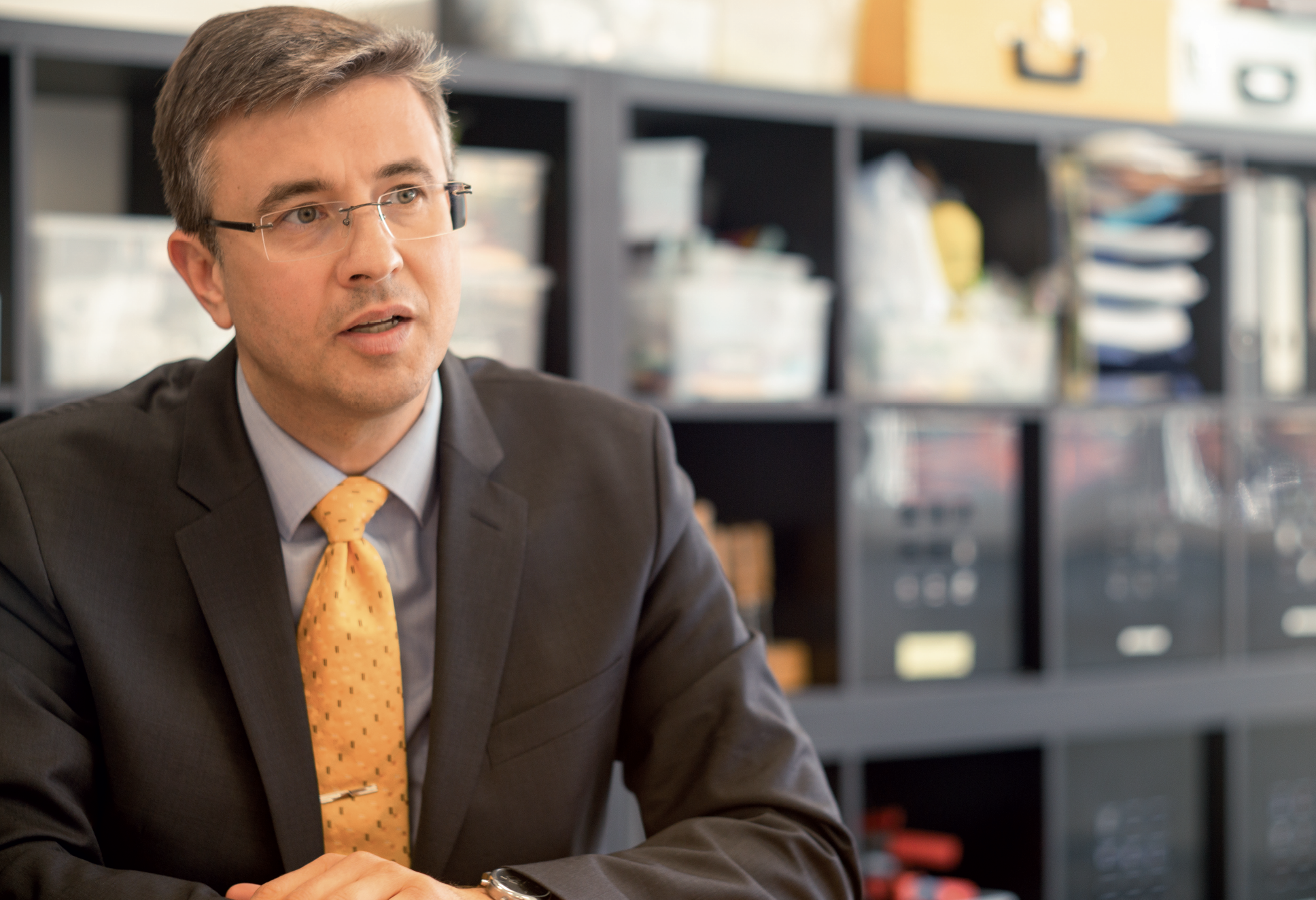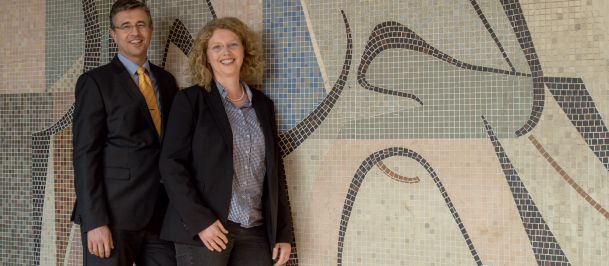Inspiring Enthusiasm
To get young people interested in so-called STEM subjects and give them a corresponding education is the issue of the hour. This is exactly what the Freiherr vom Stein School in Wetzlar does – with a broad curriculum and great commitment.
Freiherr vom Stein was a Prussian public servant and reformer. A scientist, he was not. But he might have become one if this school which was later named after him had already existed 250 years ago. Because the Freiherr vom Stein School in Wetzlar puts their focus on natural sciences. “Strictly speaking, pupils can choose between a general, a science-oriented or a sportive discipline while any of these orientations can be combined with music as a core theme,” principal Dr. Marcus Schnöbel explains. He adds: “This makes us the school with the broadest range of subjects in higher education in this region.”

Sustainable concept to strengthen the natural sciences
The word has spread long since that the middle school for advanced secondary education focuses on a broad profile with specific key aspects. Roundabout 800 male and female pupils attend school here from the 5th to 10th grade. Fairly sheltered, they come from the surrounding elementary schools, and six years later, they can choose between preparing to obtain a general qualification for university entrance or getting a vocational training. STEM is a huge priority with the Freiherr vom Stein School. In that, the school is in line with the trend, but for them, that is yesterday’s news. “It was already back in 2010 when we started to develop a concept to strengthen the natural sciences which differs markedly from established instructional models both with regard to contents and to organizational aspects,” head of the faculty Ulrike Baum explains.
Thus, profile classes for natural sciences were established for the 5th and 6th grades (entry level) with science-oriented lessons comprising 5 hours per week instead of the usual two to three hours. For this purpose, the didactic concept and organizational structure were broken up to provide more space for an intense and interdisciplinary involvement in natural sciences. “The science-oriented profile classes are very well received,” the principal enthuses. And Ulrike Baum explains why this is the case: “In the science-oriented profile classes, we work in an integrated manner which means we do not separate the lessons into biology, chemistry, and physics but we create subject areas which are then examined from different topic-specific perspectives.” The school is pursuing this path on a consistent and sustained basis, says Dr. Marcus Schöbel: “The pupils start with natural sciences and end up with MINT.”
Take for example birds: There are, of course, the biological aspects like knowledge of the species but then there are also questions such as how is it possible for birds to fly with regard to physics or how are migratory birds able to orient themselves by the magnetic field lines of the Earth; even bionics play a role because many technical inventions made by mankind were guided by examples from nature. And subjects of which the children and adolescents only get an idea in the classroom can be investigated and explored close up in the surrounding meadows, forests, and rivers. “A lot is happening during those first two years,” Ulrike Baum points out. “The motivational foundation is laid and subject-specific interests are aroused, preferences evolve and sometimes even career aspirations unfold. Especially in natural sciences, we see the curiosity, the thirst for knowledge and the enthusiasm with which pupils approach the subject areas. For the higher grades, we then develop this approach further in science-oriented subjects like physics, chemistry, and biology.”

Exceptional commitment of the school and its many supporters
It is an open secret that one learns more and better with enthusiasm and of one’s own accord – but in the STEM subjects at the Freiherr vom Stein School, this secret is actually lived in the open. The specifically set-up researcher room forges a bridge between mechanics and the digital world. Here, the pupils learn to experiment and make discoveries on their own initiative. The 9th and 10th grades may test their budding programming skills on an “Arduino”, a printed circuit board specifically developed for training. Since the summer of 2018, the youngest pupils have had the chance to dabble in the world of robotics with printed circuit boards “Calliope” and the appropriate accessory made by Fischertechnik. 30 excellent microscopes which are otherwise only used in university study courses are put at the disposal of the young researchers.
This equipment of educational and learning material is exceptional. And it is also owed to the exceptional commitment of the school and its busy “Förderverein” when it comes to attracting partners for the common cause: partners like the Association of German Engineers (VDI) of Central Hessen which was instrumental in sponsoring the researcher room; supporters like Leica Microsystems, LTI Motion, Carl Zeiss Sports Optics, Hexagon, Duktus, or Oculus which provide pupils with interesting insights into their companies; important institutional cooperation partners which pursue special STEM projects of their own, such as the Mathematikum in Gießen, the Chemikum in Marburg and of course the Viseum Wetzlar; likewise the technology group Schunk which for the second time now donated the prize money for the “MINTmit” award, issued by the Regional Management of Central Hessen.
Only recently, the Freiherr vom Stein School in Wetzlar won the “MINTmit” award. A great appreciation for principal and the head of the faculty. “The prize money is meant to contribute towards extending the computer equipment,” Ulrike Baum is pleased to tell. Although the means won’t be sufficient to make all her marvelous ideas come true, she knows: “What we have set up in the field of STEM here at the Freiherr vom Stein School would not have been possible at all without the many benefactors, supporters, and cooperation partners from the region.” This applies to the technical equipment, the subject-specific exchange – and the joint commitment for the young generation of skilled people which they will all benefit from in the end.
